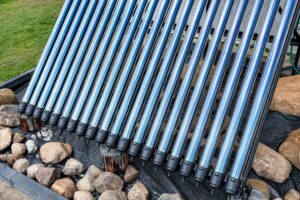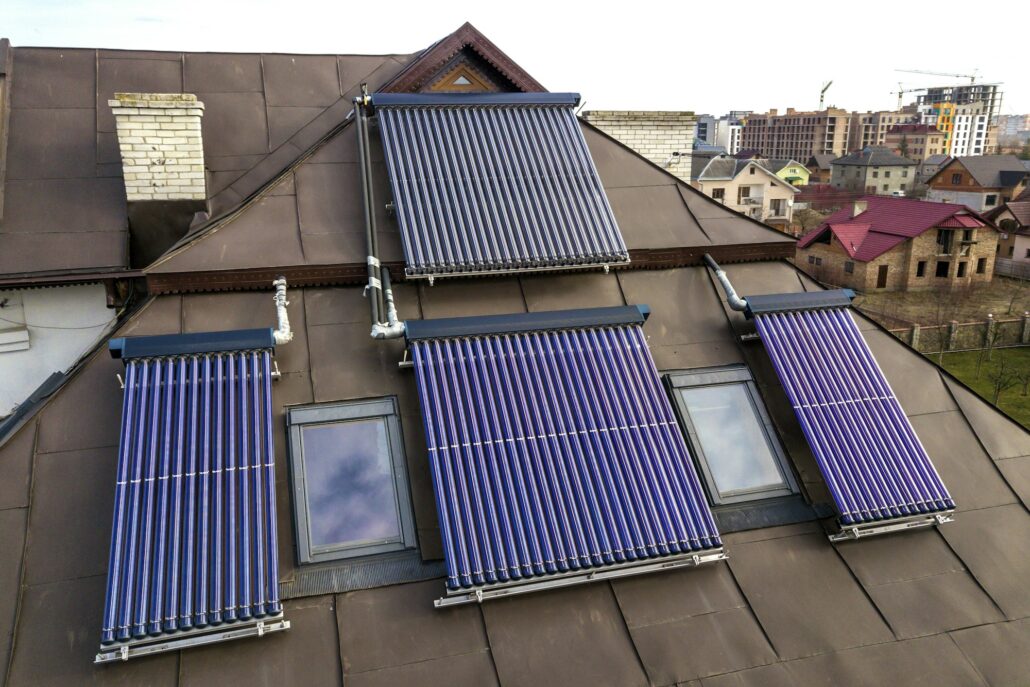Among the myriad solar technologies available, rooftop solar vacuum tubes are a promising option, offering efficiency, durability, and versatility. In this article, we delve into the realm of solar vacuum tubes, exploring their functionality, efficiency, lifespan, and the advantages they offer in paving the way toward a cleaner, greener future.
Solar vacuum tubes, also known as evacuated tube collectors (ETC) or vacuum tube collectors (VTC), are a type of solar thermal technology designed to harness sunlight for heating water or space. Unlike traditional flat plate collectors, these tubes utilize a vacuum insulation layer to enhance their efficiency.
Each tube consists of a transparent outer glass tube and an inner absorber tube, often coated with a selective absorber material to maximize solar absorption. The vacuum between the two tubes minimizes heat loss through conduction and convection, creating an effective thermal barrier.
One of the primary advantages of rooftop solar vacuum tubes lies in their efficiency in colder climates or overcast conditions. The vacuum insulation significantly reduces heat loss, allowing the tubes to maintain higher temperatures and produce hot water or space heating even in less-than-optimal sunlight conditions.

Studies have shown that vacuum tube collectors can achieve efficiencies between 70% and 80%, outperforming traditional flat plate collectors, particularly in areas with colder climates or variable weather patterns. This heightened efficiency makes them an attractive option for residential, commercial, and industrial applications.
When it comes to lifespan, solar rooftop vacuum tubes boast impressive durability. With proper maintenance, these systems can last more than 10 years. The robust design of the tubes, coupled with the protection offered by the vacuum insulation, helps mitigate degradation over time, ensuring prolonged performance and reliability.

Rooftop solar vacuum tubes represent a compelling solution for harnessing solar thermal energy efficiently and sustainably. With their high efficiency, durability, and versatility, they offer a viable alternative for meeting hot water and space heating needs in residential, commercial, and industrial settings.
Whatever your solar needs may be, let Gurr Brothers Energy guide you on your solar journey. Their team of experts will help you achieve the long-term benefits of energy savings and reduced environmental impact that make solar a worthy investment in the transition towards a cleaner, greener future.
Author: Hunter S.
Give Gurr Brothers Energy a call today and let’s start powering your life with sunshine!